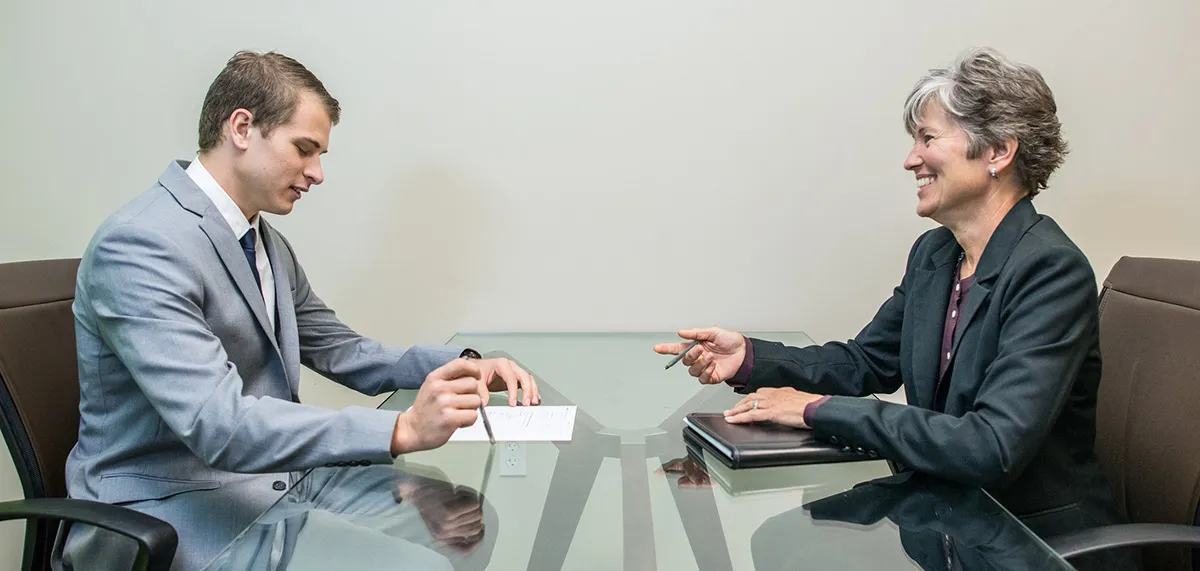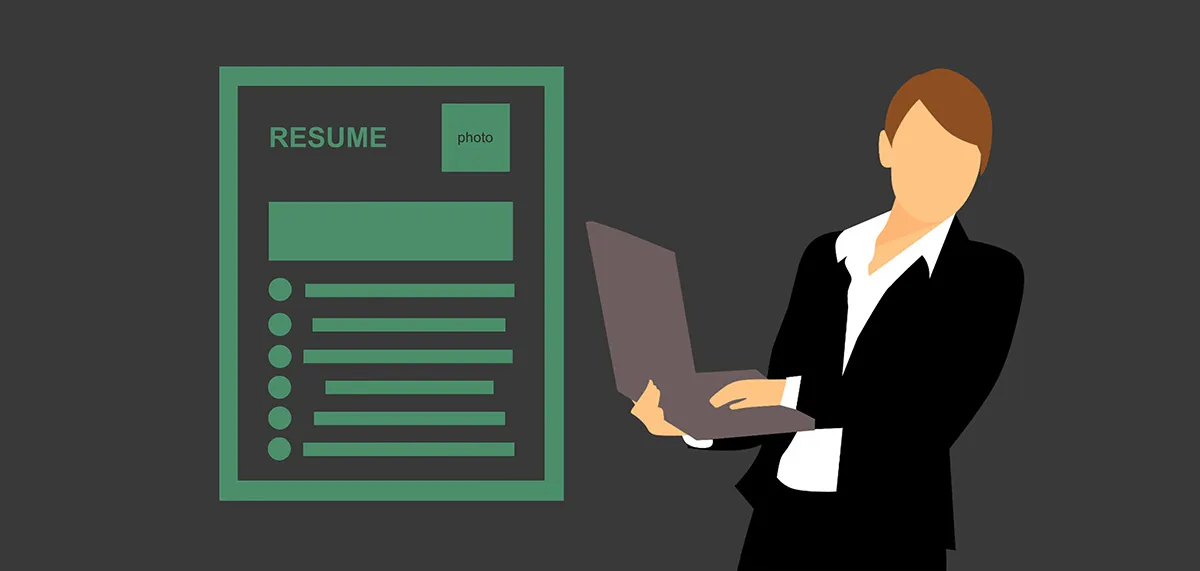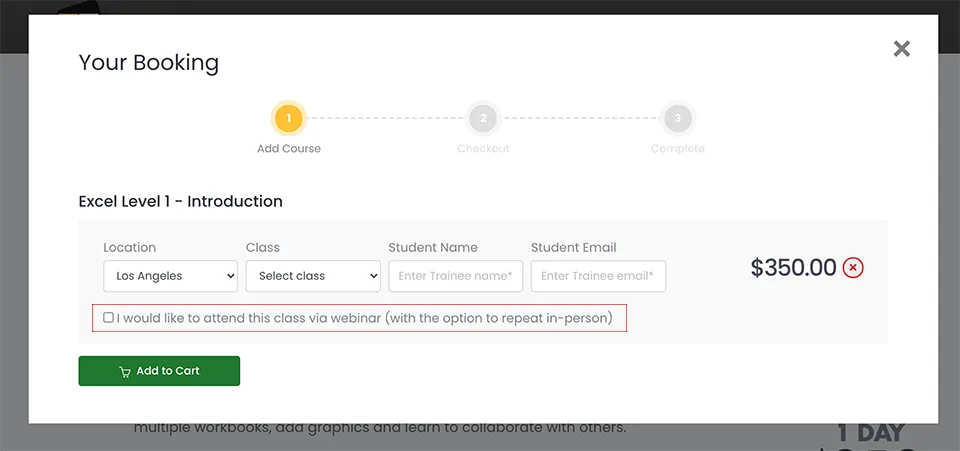Techniques To Conduct More Effective Job Interviews
According to Career Builder, the average cost of a bad hire is almost $15,000. Two out of three workers will later realize that the job they accepted is a bad fit. As an interviewer, you understand that these stats mean that the hiring process is not as efficient as it may seem.
To make the hiring process more effective, you must be armed with different tips and techniques to interview applicants effectively. In this way, you can elicit answers from your candidates to help you gain a better understanding of whether they are the perfect fit for the job.
Leadership training classses in Los Angeles.
Here we will give out various pointers and techniques to help you conduct more effective job interviews. Our aim is to help you sift the bad candidates from the good ones.
Tips And Techniques for Conducting Effective Job Interviews
1. Be Prepared
The candidates you’re going to interview aren’t the only ones who need to prepare. You, the interviewer, should be prepared too. Our discussion on this section will be very long and that’s because it’s an important part of the interview process.
There are five ways you can prepare: you must write up your interview questions beforehand, you must know your candidates, you must get ready for the candidates’ potential questions, you must plan your interview schedule, and you must create an agenda.
Preparing Your Interview Questions
To determine what to ask, you must utilize the job description and identify the vital skills necessary to complete the role successfully. These skills must be assessed throughout the interview.
Situational or behavioral questions should be favored over generic ones such as “What Are Your Strengths?” The former is better since they encourage applicants to tell stories and think while under the spotlight.

Job Interview; Image Credit
Knowing Your Candidates
Take time to read the resumes (or CVs) of each candidate. Create notes about their past experiences and skills. Use these notes to ask your candidates questions and allow them to elaborate on their capabilities and work history.
Preparing For Candidates’ Potential Questions
Candidates are also evaluating the employer and analyzing if the company and the position is a good fit. They will also ask questions relevant to their potential position. As an interviewer, you must know the honest and transparent answers to these queries.
Preparing the answers will take a lot of time but you only have to do this once. Questions you must be prepared for may include, but are not limited to, the following:
- An overview of the company and its goals,
- The team and its projects,
- The benefits and perks of the position,
- How to proceed with the hiring process if the candidate passed the interview,
You must be aware of which details you can divulge and which information you can’t. Coordinate with the HR department for this. When applicants ask a question you cannot disclose the answer to, you should also know the appropriate, tactful response.
Planning Your Interview Schedule
Make sure you have scheduled enough time to interview each candidate. It is best to set a time for the interview about 15 to 30 minutes before or after an important meeting. Don’t leave the applicants waiting and don’t rush to finish the interview just because you have another important obligation you need to attend to.
Creating A Structure For Your Agenda
You must have a rough structure or agenda for the actual interview. Improvising and going for unstructured interviews are not effective. If you have an agenda, you can guide the entire discussion smoothly. Plus, you won’t forget to ask or cover important topics. Determine what you’ll do in the beginning, middle, and end. Have a flow for the questions you’ve made up. In this way, you don’t waste time going through trivial matters.
2. Make Your Interviewees Feel Comfortable
Interviews can be stressful for job applicants and when they’re stressed, they’re less likely to be authentic or vocal. You can put the candidates at ease by establishing rapport at the beginning. So how do you do this? Find a shared topic (that’s not related to the job) and talk about that before getting down to business. This can be anything from complimenting their attire to finding shared interests as seen in their resumes.
3. Listen More
The interview is not about you and your accomplishments. The applicant is the biggest concern so you have to listen attentively. In addition, you have to be alert to the candidates’ non-verbal language including attire, posture, focus, and hand gestures.
4. Be Consistent
Make sure you ask all candidates the same set of questions. It allows you to compare apples with apples. Asking the same pool of questions also eliminates bias when comparing and evaluating applicants. You should use open-ended questions which provides more flexibility on the part of the candidates. Avoid closed-ended or leading questions.
5. Be Authentic And Natural
Do not memorize a script that make you sound robotic or over-rehearsed. Simply relax and think that this is a get-to-know conversation. But you have to remember you still have to follow your agenda.
The candidates can sense if you’re being fake. This will make them more hesitant to open up and it says something about the company your representing -- an impression that’s not very good when you want to attract top talent.

Job Interview; Image Credit
6. Take Leadership Classes
As an interviewer, you have to impart yourself as an authority and a leader. You can take business leadership training to improve your skills in dealing with subordinates and other people within your team.
Business leadership training will not only improve your skills at the workplace but will also help you acquire skills to discipline, motivate, and push yourself to your limits. These classes can be very effective in improving various aspects of your life.
7. Take Notes
During the interview process, you have to take notes. This includes writing down a summary of the candidates’ responses and their body language. List down the important things they’ve said and state if they look confused, nervous, or confident. Jot down the points you believe are important to the final decision-making process.
In Conclusion
Being an effective interviewer means you take the focus off yourself and place it on the candidate. You have to prepare beforehand and take the steps necessary to make the interview successful. It takes skill to become an effective interviewer and this is necessary to find the employees that can be attributes to a company.
